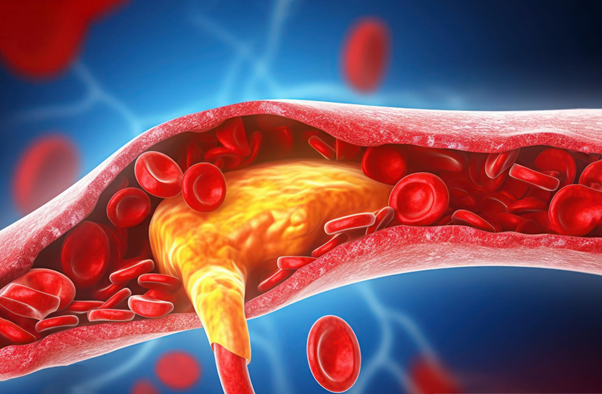Dyslipidemia is a condition where you have unhealthy levels of fats or cholesterol in your blood, which can increase your risk of heart disease and other health problems. There are many myths about dyslipidemia that can lead to confusion.
We will clear up some common misconceptions and provide the facts you need to understand the condition better.
Myth 1: Dyslipidemia is Only Caused by Poor Diets
Fact: While eating unhealthy foods can contribute to dyslipidemia, it’s not the only cause. Genetics, lack of exercise, smoking, and certain medical conditions like diabetes can also cause this condition. Some people may have a family history of high cholesterol, making them more likely to develop dyslipidemia, even if they eat a healthy diet.
Myth 2: Only Overweight People Can Have Dyslipidemia
Fact: Dyslipidemia can affect anyone, not just those who are overweight. While being overweight or obese increases your risk, even people with a normal weight can have high cholesterol or other lipid imbalances. Genetics and lifestyle choices, like exercise and diet, play a big role in your cholesterol levels, regardless of your weight.
Myth 3: If You Have High Cholesterol, You Will Always Have Symptoms
Fact: Dyslipidemia is often called a “silent” condition because many people don’t feel any symptoms, even with high cholesterol. You might not know you have it unless you get a blood test. That’s why regular check-ups and screenings are important, even if you’re feeling fine.
Myth 4: High Cholesterol Means You Will Definitely Get Heart Disease
Fact: While high cholesterol increases your risk of heart disease, it doesn’t mean you will definitely get it. Many factors contribute to heart disease, such as high blood pressure, smoking, and family history. By making lifestyle changes and managing cholesterol levels, you can reduce your risk and stay healthy.
Myth 5: Statins Are the Only Way to Treat Dyslipidemia
Fact: Statins are common medications used to lower cholesterol, but they are not the only treatment. Making lifestyle changes like eating a heart-healthy diet, exercising, and losing weight can also help improve your cholesterol levels. In some cases, other medications may be prescribed based on your health needs.
Myth 6: Only Older Adults Need to Worry About Cholesterol
Fact: While the risk of dyslipidemia increases with age, younger people can also develop high cholesterol, especially if they have a family history of heart disease or an unhealthy lifestyle. It’s important to get your cholesterol levels checked early to prevent problems in the future.
Myth 7: All Cholesterol is Bad
Fact: Not all cholesterol is harmful. There are two types: low-density lipoprotein (LDL) and high-density lipoprotein (HDL). LDL is often called “bad” cholesterol because it can lead to plaque buildup in your arteries, while HDL is known as “good” cholesterol because it helps remove excess cholesterol from your blood. Both types are important for a balanced cholesterol profile.
Myth 8: Only High Cholesterol is a Problem
Fact: While high cholesterol is the most common type of dyslipidemia, other lipid imbalances like low HDL (good cholesterol) or high triglycerides can also be harmful. It’s important to check all aspects of your lipid profile and not just focus on total cholesterol.
Myth 9: Dyslipidemia Can Be Fixed with Medication Alone
Fact: While medications like statins can lower cholesterol, they work best when combined with a healthy lifestyle. Eating a balanced diet, exercising, and not smoking are essential for managing cholesterol and keeping your heart healthy in the long term.
Myth 10: If Your Cholesterol is Normal, You Don’t Need to Worry
Fact: Even if your cholesterol levels are normal now, it’s still important to maintain a healthy lifestyle. Cholesterol levels can change over time, and regular check-ups will help catch any changes early, allowing you to take action before problems arise.
Dyslipidemia is a serious condition, but understanding the facts can help you take control of your health. While genetics, diet, and lifestyle all play a role in cholesterol levels, you can make choices that lower your risk of heart disease. Regular check-ups, a healthy diet, exercise, and avoiding smoking are key to managing dyslipidemia and staying heart-healthy. If you have any concerns about your cholesterol, talk to your doctor.
Early detection and treatment can make a big difference in your long-term health!

